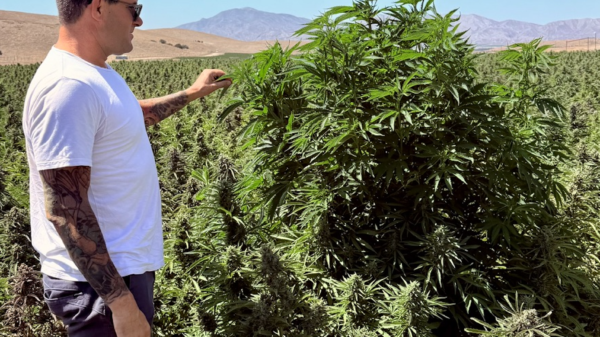The legalization of cannabis in Canada has not led to an increase in problematic use overall, but marginalized groups remain at higher risk, a new study suggests.
The new study led by researchers at the University of Waterloo released on Monday, assessed rates of “high-risk” cannabis use among people aged 16-65 in the years after legalization and found no evidence of a change in the proportion of those whose cannabis use would be classified as high risk
Researchers found people in poorer neighbourhoods and some racial minorities were slightly more likely to be moderate-risk users. However, the differences were small and steady over time. There was no significant increase in high-risk use for any group.
The risk of problematic cannabis use does not appear to have increased in the 2 years following cannabis legalization in Canada.
“Disparities in problematic use persisted, with some racial minority and marginalized groups experiencing higher risk,” reads the study by lead author Fathima Fataar.
The study used national survey data from 35,000 Canadians aged 16 and older. Respondents reported frequency of use and symptoms of cannabis use disorder to determine risk levels. Moderate use was defined as weekly use with some symptoms of dependence, while high-risk use meant daily use with a cannabis use disorder.
The findings suggest Canada has not seen a major rise in cannabis misuse and addiction since the country legalized recreational pot. However, researchers call for continued monitoring to understand the public health impacts of legalization over the longer term.
Read more: Young men at highest risk of schizophrenia linked to cannabis use: study
Read more: Doctors should be more open to prenatal cannabis use for morning sickness: study
“Canada’s real-world experience with marijuana legalization, much like the experiences in many US states, affirms that these policies can be implemented in a way that provides regulated access for adults while simultaneously limiting youth access, discouraging misuse, and not compromising public safety,” NORML’s Deputy Director Paul Armentano said in a statement on Monday.
The drug legalization activist non-profit said on Monday that data from the U.S. has shown no increase in rates of problematic cannabis use after states legalized marijuana, especially among youth.
Separate analyses examining the impacts of Canada’s cannabis legalization law found no rise in cannabis-induced psychosis, car crashes, other injuries, or emergency room visits due to intoxication. Studies also found a growing share of users obtain cannabis legally and stable use rates among young adults ages 18-25.
In sum, evidence from the U.S. and Canada suggests legalizing marijuana has not led to surges in harmful cannabis use or negative health and social outcomes, particularly in young people. Consumption patterns appear largely unchanged.














